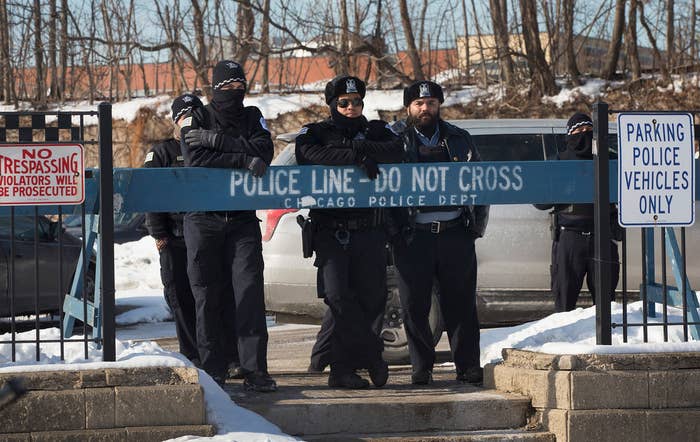
People were stopped and not arrested more than 250,000 times by Chicago police officers from May 2014 to August 2014 — a rate much higher than New York City's police department at the height of its use of stop-and-frisk in 2011, according to a new report by the ACLU of Illinois.
The report, released Monday, said Chicago overuses the highly criticized practice — which, much like New York's, disproportionately targets black people and other minorities.
The review found that black people were stopped at a much higher rate. According to the report, African-Americans were subject to 72% of all stops yet account for just 32% of Chicago's population.
According to a landmark Supreme Court case, police officers may only stop people if they have reasonable suspicion that person has committed or will commit a crime. Officers are allowed to frisk a person only if they have reasonable suspicion the person is dangerous.
Chicago police officers are required to document the reason of a stop — on reports called "contact cards" — when it doesn't lead to ann arrest. There is no obligation for officers to document stops that result in arrests. There's therefore no record of all stops.
The ACLU reviewed 250 contact cards, picked at random, and concluded that in more than half, police officers didn't cite a legally sufficient reason to make a stop. In some cases, officers stated they stopped people for reasons unrelated to a crime — including walking away from an officer and for associating with others who were suspicious. According to the ACLU, neither of these reasons justifies a stop.
"Our chief goal is to ensure that everyone in every neighborhood enjoys the same sense of safety, and the best way to achieve that goal is working with the communities we serve," a statement from the Chicago Police Department News Affairs office said. "That's why community policing and building trust with residents is the foundation of our policing philosophy. People should only be stopped based on crime data and crime information. Nothing else."

The report dove deeper into each of Chicago's neighborhoods. In Englewood, a predominantly minority area, there were 266 stops per 1,000 people, while in the mainly white area of Lincoln/Foster there were 43 per 1,000. Despite African-Americans constituting just 1% of Jefferson Park's population, they make up almost 15% of all stops.
The ACLU report also criticizes the Chicago Police Department's lack of record keeping. The city does not have a comprehensive database of all stops available to the public the same way New York and Newark, New Jersey, do.
The ACLU said it has begun the process of collecting this data from other cities in Illinois, and it will be presented in a future report.
